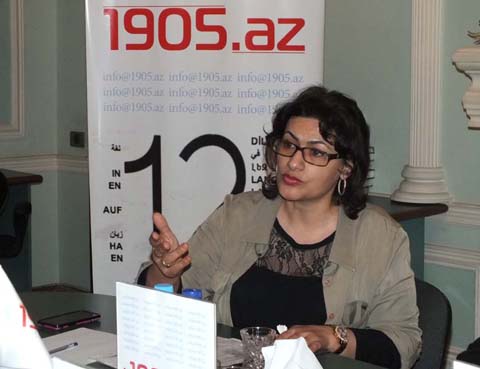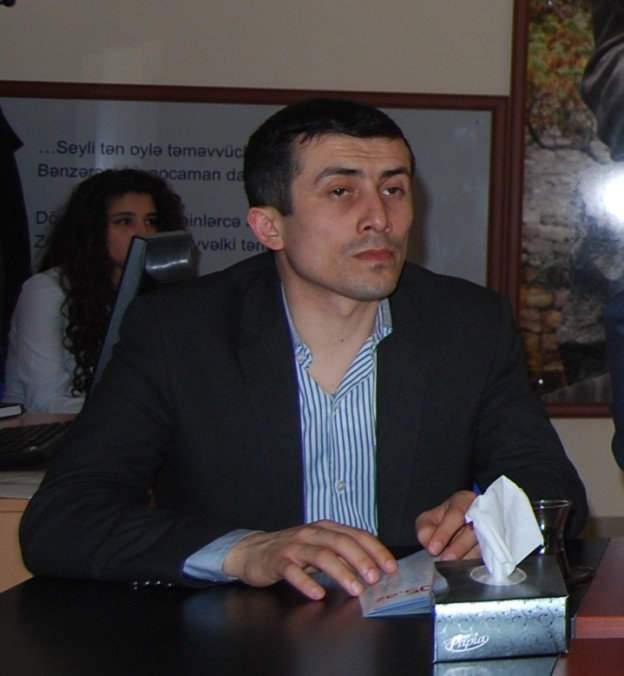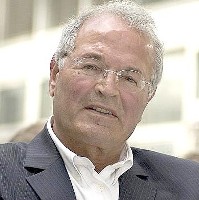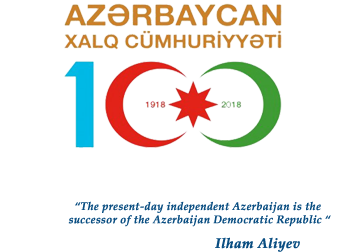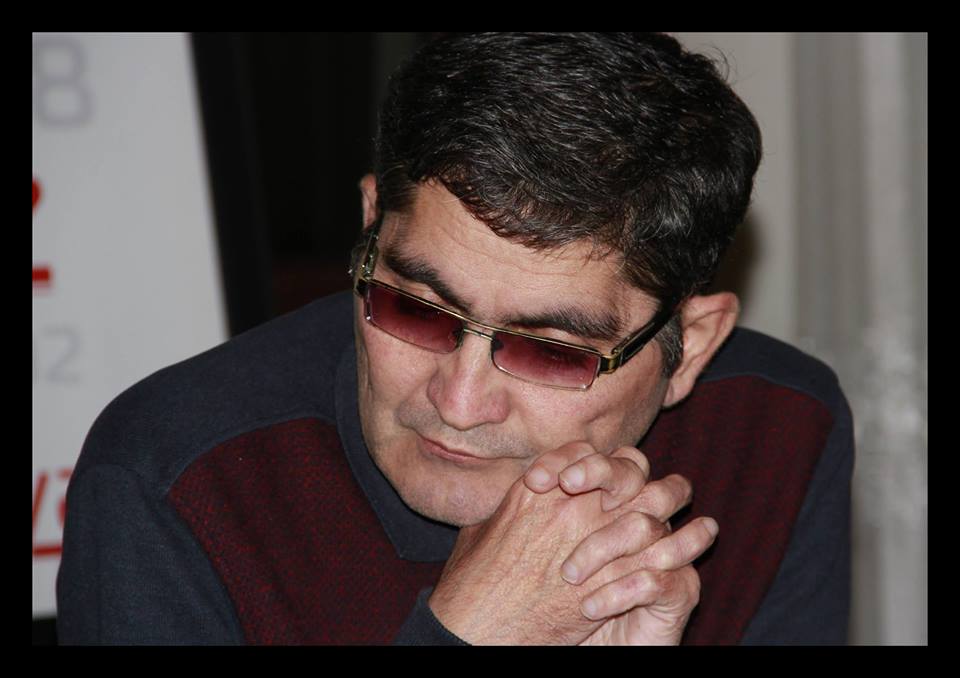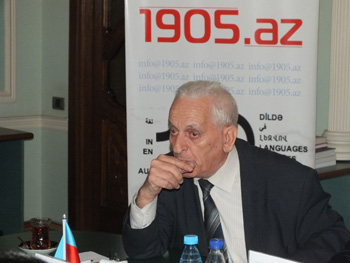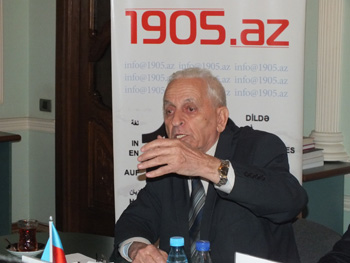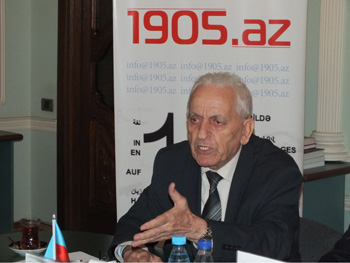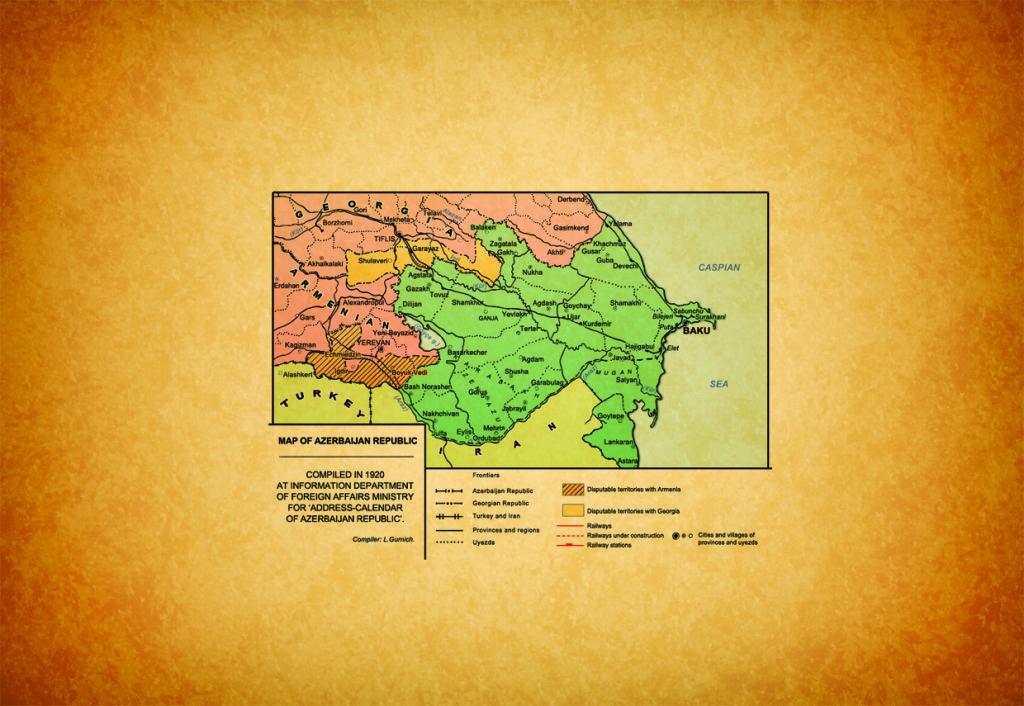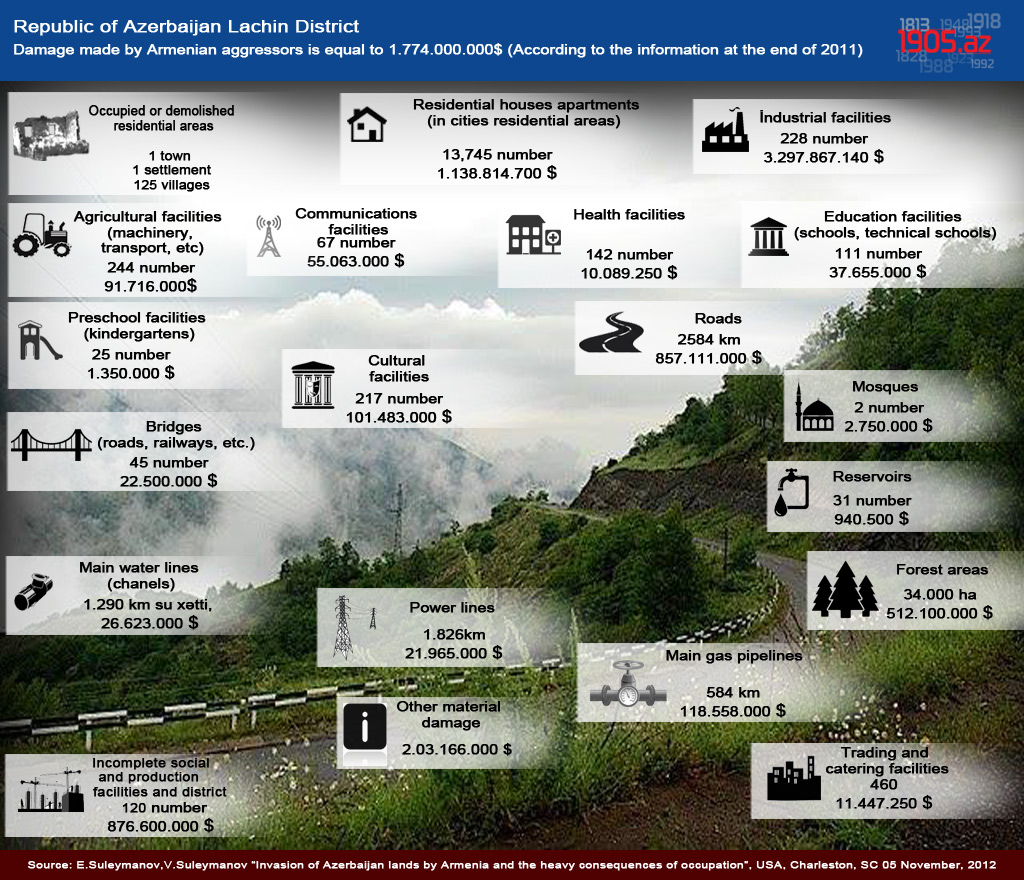After careful scrutiny, I defined twenty elements proving that the Council of Europe’s Venice Commission (hereafter VC) preliminary opinion (hereafter PO) is not impartial in its approach towards towards Azerbaijan.
References and citations from previous VC reports were very selective, entailing extreme criticism.
Venice Commission is mostly concluding that proposals are “incompatible with democratic standards”, thus making only general normative reflections, and not proving proposals are legally in breach with existing international conventions.
This biased preliminary opinion is characterized by bad intention, and turns out to be a political pamphlet rather than a legal document, as allegations are slogans not backed up by legal references.
General remarks and procedure
The PO mostly refers to a previous report by VC, “CDL-AD(2010)001” entitled “REPORT ON CONSTITUTIONAL AMENDMENT”, adopted on 11-12 December 2009, to prove that new constitutional provisions are to be heavily criticized.
But several paragraphs of this same report put VC allegations against Azerbaijan into perspective:
§ 17. “The present report is primarily a descriptive and analytical text and will not attempt to formulate any new European “best model” or standards for constitutional change. This is neither possible nor desirable. Neither will it critically assess the existing national constitutional amendment procedures. The report aims at identifying and analyzing some fundamental characteristics and challenges of constitutional amendment, as well as offering some normative reflections.”
VC is admitting that constitutional model can be very different, from state to state, many factors can influence.
§ 107. “It is neither possible nor desirable to try to formulate in abstracto a best model for constitutional amendment. The point of balance between rigidity and flexibility may be different from state to state, depending on the political and social context, the constitutional culture, the age, detail and characteristics of the constitution, and a number of other factors. Also, this balance is not static, but may shift over time, reflecting political, economic and social transformations.”
In § 13 the PO is saying that the “current constitution does not provide for any formal involvement of Parliament…… This is highly problematic” and refers to § 183 of the 2009 Report : “The Commission is of the opinion that the national parliament is the most appropriate arena for constitutional amendment, in line with a modern idea of democracy.”
But the VC is turning a blind eye to next § 184 : “As previously seen, the legitimacy of the constitutional amendment may be strengthened by direct involvement of the people in the amendment procedure by means of referendum….”
Why is VC not mentioning this crucial part of their previous report in respect of Azerbaijan, and in support of the Azerbaijani referendum initiative?
In § 15 the PO is saying “such referendums enable the people only to say yes or to say no to the reform proposed”, but isn’t that the essence of a referendum? One can hardly ask the voters to write their own constitutional thesis on their ballot paper.
Moreover, at the Azeri referendum voters are asked to vote yes or no, NOT “on the reform proposed”, but on EACH proposal (out of 29) separately, to clearly allow voters to differentiate their vote. Why isn’t VC mentioning this very democratic aspect of the Azeri referendum?
In § 17 the PO is advocating “transparency and openness” by referring to a recent report on Kyrgyz Republic, dealing with national minorities. In § 18 it says that “NGO’s in Azerbaijan have expressed concerns that the launching of the reform has not been preceded by any wide public discussion” but in Azerbaijan official documents were sent several weeks ago by regular courier to all postal addresses in the country, informing citizens about upcoming referendum, explaining all 29 proposed changes, one by one, arguing reasons for each reform. Civil society had full opportunity to launch debates on the substance, at local, regional or national level, but did not, and indeed only appealed to traditional international critics of Azerbaijan to attack this initiative.
Why is VC not mentioning this exemplary “transparent and open” informative action by the government to all Azerbaijani citizens, without exception?
On the contrary, the PO is concluding in § 19 that “all this undermines the constitutional legitimacy of the reform, and may prevent the people of Azerbaijan from making an informed choice”. In this regard it’s worth to note that VC’s constitutional experts are NOT calling the reform illegitimate, but prefer to remain vague “undermines the legitimacy….”
In § 21 the VC continues to make interpretations “this rule, which may be regarded as…..can probably be derogated…..but this does not appear to be the case in Azerbaijan”. Who else than the Azerbaijani people can decide on what appears to be or doesn’t appears to be the case in Azerbaijan?
Human rights
In § 23 the VC is admitting that “some of those modifications expand the scope of protection of the currently recognized human rights”, but these are not further elaborated in the PO. Why?
About reforms in the field of human rights the VC is very clear in its § 28 : “The modifications introduced by the reform into the human rights provisions of the Constitution, taken as such, do NOT directly contradict the international obligations of Azerbaijan” and VC refers to their previous 2009 report, § 42. “The present opinion is based on the text of the constitutional amendments and cannot take into account any future implementing legislation. If appropriate legislation is adopted, some of the concerns expressed in the opinion would lose relevance” thus admitting that their criticism on the Azerbaijan referendum is at least very conditional and premature.
VC concludes in § 32 of the PO that “The compatibility of the Draft (and of any further implementing legislation) with the international obligations of Azerbaijan should not be assessed solely on the basis of the formal compliance of the text of the Constitution with the texts of the international conventions and treaties to which Azerbaijan is a party” which means that VC admits that the Draft is formally complying with Azerbaijan’s international obligations……! And all further allegations and critics are based on strictly personal interpretation by the authors of the PO.
In § 33 of the PO, VC is clearly recognizing about “human dignity is protected and respected”, that “inclusion of this concept in the Constitution of Azerbaijan is positive.”
Also § 35 concludes by “this development is positive.”
In § 36 of the PO the VC also agrees that “the idea of the non-absolute character of property rights is legitimate.”
Same formulation in § 38 “Personal data protection is a legitimate concern and its elevation as a constitutional matter is a positive development” but once again this correct assessment of the reform is commented by warnings of possible abuse of law. Such abuse of law however cannot be predicted, and it’s very regrettable that VC is continuously making similar negative suggestions. It proves that position of VC towards Azerbaijan is unfortunately not neutral but very one-sided.
Exactly similar negative suggestion is noted in § 39 : “New Section IV of Article 36 prohibits lockouts, except in cases provided by law. This provision appears to give additional protection to the workers; however, etcetera…..” Why is VC not correctly commenting this positive reform exactly as proposed, but always looking for possible negative considerations?
From § 43 to 47 comments are characterized by “….this modification is welcome to the extent that….”, “….may be problematic….”, “…..it would be advisable….”, “…..the proposed wording may be interpreted….”, “…..it would be legitimate only to the extent that…..”, “…..this clause is legitimate under the condition that…..”, “…..this modification goes in the right direction, however…..”, etc.
Finally, § 48 on the contrary is clearly very positive : “Art 68 guarantees….. this is a very important principle of good State governance, and, as such, its introduction into the text of the Constitution is welcome……About Section IV ….. again, this is a very welcome provision: it stresses that…..”
Institutional changes
About the extension of the presidential term of office, the VC is – as could be expected – heavily critical in § 49 till 52, but in the PO they nevertheless have to admit in §51 that “Such reforms may sometimes be explained by the electoral cycles of other State bodies, by a long-lasting political crisis etc.;”, but VC has its own opinion about current regional, geopolitical and social situation in Azerbaijan : “however, neither of these situations seems to apply in Azerbaijan”.
The country is at war with neighboring aggressor Armenia, occupying one fifth of its territory since more than 20 years, almost one million IDP’s remain an enormous burden for society, the country is affected by negative foreign influence on fundamentalism entailing possible terrorism, citizens are frightened about terrible developments in Middle East, etcetera. But according VC “neither of these situations seems to apply in Azerbaijan”….
In § 53 VC concludes “Article 101 which extends the Presidential mandate for longer than is the European practice, coupled with the previous removal of the two-term limitation, concentrates power in the hands of a single person in a manner not compatible with the separation of powers.” This is clearly a very vague and philosophical allegation, for sure it is NOT a solid legal consideration.
In § 55 the VC is extremely harsh, calling an anticipated election of the president “unacceptable”. But when it comes to arguments, they only mention that ”it gives an additional prerogative to the outgoing chief of State” and “this provision is therefore incompatible with democratic standards….” Which democratic standards? Defined by whom? Signed by which contracting states and/or parties?
When it comes to the power of the President to dissolve Parliament, assessment is quite positive in § 56 to 58 : “as such, serves to harmonize Art. 98…..” etc. But once again, in § 59 the VC continues with related negative suggestions and interpretations : “however, this power should be assessed…..” and “…..this may disturb…..”, etc.
From § 61 to 64 division of powers in Azerbaijan is explained, and reforms criticized. Eventually VC states that “It is true that the principle of “division of powers” is not immovable; exact limits of the presidential power vis-à-vis parliament cannot be defined once and for all. However, the reform under consideration is weakening the legislature to the extent that it may deprive the foundational principle of “division of powers” in the Constitution of Azerbaijan of any practical meaning”. The VC remains very cautious. They don’t blame Azerbaijan that it’s “depriving”, but they state that “it may deprive”. One will remember that the tone of the consideration is once again negative, even when no negative element was truly assessed, and only a negative possibility was suggested.
On the failure to appoint top judges, this is a concern in many democratic countries. The pending appointment of a Supreme Court judge in the US is an example by excellence, well-known over the world. Whereas the reform is proposing an acceptable solution to similar deadlock situations, the VC once again in § 66 prefers to look at it from a negative angle “this provision represents a serious threat….”, but VC is NOT claiming that the proposed reform is illegitimate.
In next paragraphs VC is continuing its intentional process : “……this formula is too vague….”, “…..it may be interpreted as…..”, “…..it is dangerously vague and may be interpreted as…..”, so VC in its PO concludes in § 69 without hesitation that “new Article 98-1 is therefore incompatible with democratic standards.” This kind of simplified deduction by VC is indeed dangerously vague!
§ 70 to 72 describe critics on the introduction of the figure of the Vice-President. VC is again developing thesis of possibility of abuse of the law, not even trying to understand the reason of this reform. “The possibility for the President….” is enough to declare that “New Article 103-1 is therefore incompatible with democratic standards.”, albeit not clear which precise democratic standards VC has in mind, as no reference to any official legal document is made.
VC is criticizing lower age limit, saying that “…..it may affect the overall quality of the State governance in the country” whereas the current general tendency in all European countries is to lower age limits, even till 16 year.
Conclusions
In the conclusions of the PO, on the procedure, the VC is regretting that Parliament was not consulted. Procedure in the current Constitution is however very clear, and the reform is fully in line with constitutional procedure. Moreover, VC admits in a previous report that legitimacy of reform is strengthened by referendum.
VC is quite positive on reform regarding human rights, but is sometimes hesitating, and formulating some conditional interpretation.
Most attention of VC goes to institutional reform. This reform is clearly not considered illegitimate, but is assessed as “incompatible with democratic standards”. This is obviously not a legal consideration but a normative reflection, and VC is free to formulate any considerations on political practice. It could be expected from VC however that they would be more precise, by making genuine legal assessments in this PO.
As this PO is addressing an international audience of expert lawyers, it is therefore a public admission of weakness. VC fails to formulate legal critics, and desperately tries to justify its biased criticism on Azerbaijan with “possibilities and maybe’s”, and eventually with some vague self-declared morality.
Elkhan Suleymanov
MP of Azerbaijani Parliament, PACE member
Baku, 22 September 2016.



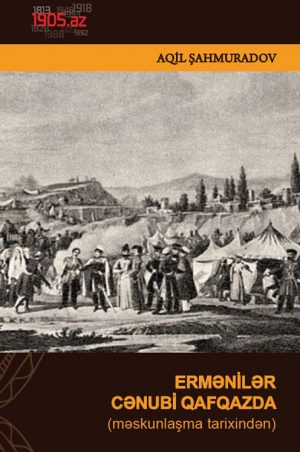





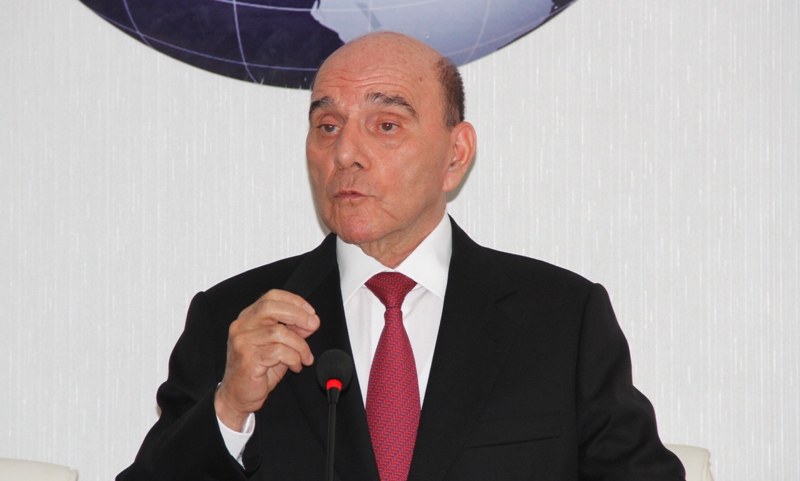
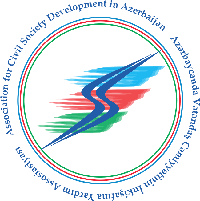
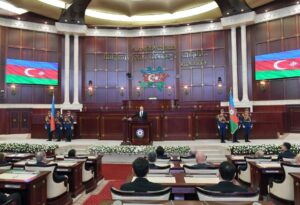 Inauguration ceremony of President of Azerbaijan Ilham Aliyev was held
Inauguration ceremony of President of Azerbaijan Ilham Aliyev was held Ilham Aliyev wins presidential election with 92.05 percent of votes VIDEO
Ilham Aliyev wins presidential election with 92.05 percent of votes VIDEO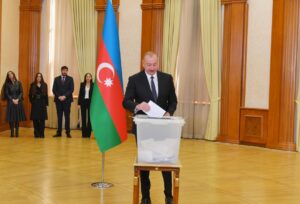 President Ilham Aliyev, First Lady Mehriban Aliyeva and family members voted in Khankendi VIDEO
President Ilham Aliyev, First Lady Mehriban Aliyeva and family members voted in Khankendi VIDEO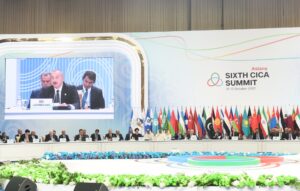 Plenary session of 6th Summit of Conference on Interaction and Confidence Building Measures in Asia gets underway in Astana. President Ilham Aliyev attends the plenary session VIDEO
Plenary session of 6th Summit of Conference on Interaction and Confidence Building Measures in Asia gets underway in Astana. President Ilham Aliyev attends the plenary session VIDEO President Ilham Aliyev was interviewed by Azerbaijani TV channels in Prague VIDEO
President Ilham Aliyev was interviewed by Azerbaijani TV channels in Prague VIDEO



